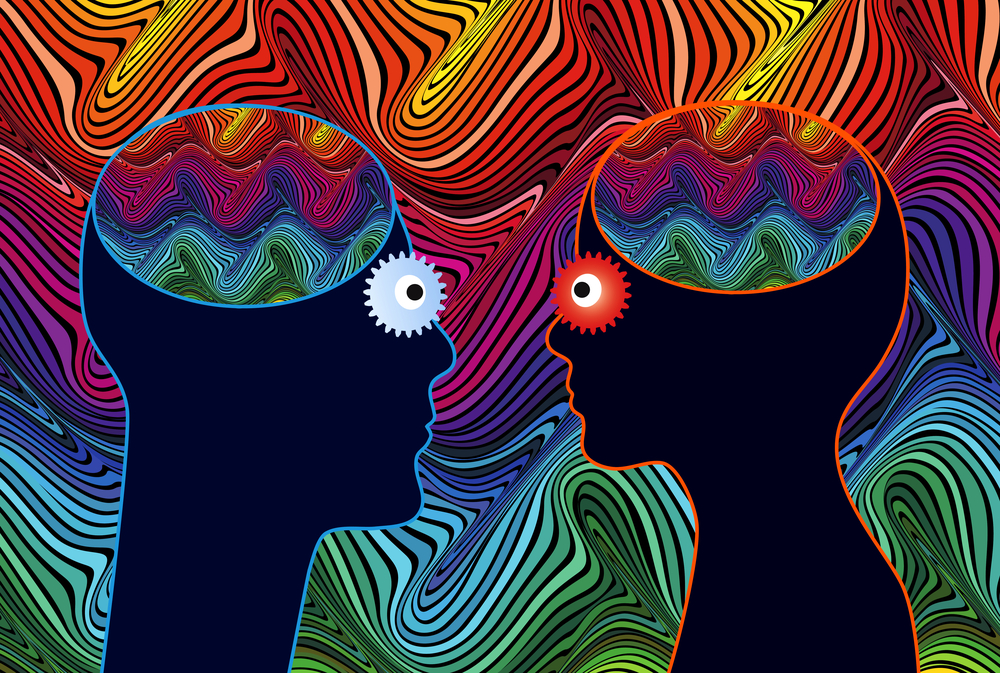Last Updated:
July 21st, 2025
Hallucinogen Detox | Withdrawal Issues to Expect
Hallucinogens are often romanticised as pathways to self-discovery or expanded horizons. But hallucinogen addiction can be a terrifying experience, with many people suffering from declining mental health, flashbacks, panic attacks and even complete dissociation. Hallucinogen drug detox can help your body and brain return to a state of balance and recalibration. It gives you the chance to calm the chaos and lay the foundations for rehab treatment and the next stages of recovery.

The importance of hallucinogen detox
Detox is often seen as battling physical cravings, but hallucinogen detox is more about recovering from the psychological or mental chaos. Hallucinogens often don’t feel addictive in the traditional sense, but you can still become dependent on their psychological effects or the escapism or connection they seem to provide. When that becomes something you rely on to feel normal (or to feel anything at all), that’s a huge part of addiction.
Hallucinogen withdrawal symptoms can vary enormously. Some people feel foggy, disconnected or emotionally fragile. Others struggle with anxiety, depression, unpredictable mood swings, flashbacks or paranoia. Trying to cope with that alone, especially without understanding what’s happening, can be incredibly hard and even dangerous. Hallucinogen detox provides a safe space where you can reset in peace and where trained professionals can help you through the mental fallout.
The detox treatment process for hallucinogens
Hallucinogen detox begins with a supportive intake process where you can talk openly about your drug addiction habits. This may include what you’ve taken, how often and how it’s impacted your state of mind. This last point is because struggles with mental health and addiction are intrinsically linked and can have a huge effect on withdrawal.
Once detox begins, you will be closely monitored by medical staff who know how to spot early warning signs of hallucinogen withdrawal symptoms. This could include disorientation, panic, mood swings or emotional numbness, but if anything becomes too overwhelming, you will receive professional support, including medication if needed.
Your care will also include the basics like rest, hydration, light meals and emotional reassurance. If sleep is difficult or your thoughts feel scattered, you will have people around you who know how to reassure you and keep you grounded.
Some of the most common forms of hallucinogen detox include:
- Mood swings or emotional numbness
- Anxiety and panic
- Visual flashbacks
- Difficulty sleeping
- Confusion or disconnection from reality
- No motivation
- Depression
- Visual or sensory flashbacks
- Anxiety or restlessness
- Difficulty concentrating
- Depersonalisation or derealisation
- Low mood or depression
- Distorted sleep patterns
- Intense cravings
- Depression or suicidal thoughts
- Memory issues
- Anxiety and paranoia
- Hallucinations or delusional thinking
- Aggressive or unpredictable behaviour
Hallucinogen withdrawal symptoms timelines
Withdrawal from hallucinogens doesn’t always follow a fixed pattern and varies depending on the drug, the person, how often they’ve used and how much they’ve taken. That said, there are still general patterns, and the timelines below demonstrate what you might experience during detox from different hallucinogens:
- 0–6 hours: Most DMT withdrawal symptoms appear early. You may feel emotionally flat, disoriented, unsettled, anxious or overstimulated.
- 6–24 hours: Mood swings and mild confusion may continue, and you may also have a headache or body tension. However, physical DMT withdrawal symptoms are usually mild.
- Days 2–3: DMT withdrawal symptoms may already have begun to resolve by this point. You should be feeling more emotionally balanced, though a little anxiety or insomnia may persist.
- Beyond 3 days: Most people feel physically and mentally stable by now. If you’ve been using DMT heavily, you may still feel a little emotionally numb or disconnected, but these symptoms typically fade within a week or two.
- 0–24 hours: As the trip wears off, it is common to feel mentally foggy, overstimulated or emotionally flat. Some people struggle to sleep or feel unusually anxious, even if the experience itself isn’t frightening.
- Days 2–5: Flashbacks or visual “trails” may appear during the middle of the first week, along with depression, poor concentration and sensitivity to noise or light. If you’ve been using LSD frequently or if you have underlying trauma or mental health issues, anxiety and emotional detachment can become intense.
- Days 6–14: Most people begin to stabilise during this period. Flashbacks may fade, and your focus and mood should slowly return to normal. Sleep usually improves, but you might still feel emotionally fragile or disoriented at times.
- Beyond 2 weeks: If LSD withdrawal symptoms like visual disturbances, anxiety or mood swings continue, this may be part of HPPD, a condition where flashbacks and visual distortions continue long after the drug is gone. With regular support, most symptoms should ease over the next month or so, but you may need longer-term care if you have a long history of LSD use or co-occurring mental health conditions.
- 0–72 hours: This is the most critical stage. Symptoms like confusion, paranoia, aggression or delusions can appear quickly and become intense without warning. Some people even experience hallucinations or violent outbursts, so medical supervision is essential to manage risk and keep you and others safe.
- Days 4–10: Psychological symptoms often peak here. You might feel depressed, emotionally volatile or completely disconnected. Cravings can also be very strong, and you may experience memory problems, insomnia and physical discomforts like headaches or nausea.
- Weeks 2–4: Even after the worst PCP withdrawal symptoms fade, lingering effects like poor focus, a lack of energy and motivation, paranoia or emotional dullness may continue. Because PCP can slowly re-enter the bloodstream from fat storage, some symptoms may randomly spike again.
- Beyond 1 month: Long-term symptoms like cognitive issues, chronic depression or psychotic episodes can last for weeks or even months, especially after heavy or long-term PCP use. Ongoing therapy, mental health support and relapse prevention during drug rehab are crucial to full recovery and preventing a relapse or dangerous complications.
Is it safe to detox from hallucinogens at home?
Detoxing from hallucinogens might seem like something you can handle on your own, especially if you’ve convinced yourself you’re not really “addicted.” But hallucinogen withdrawal can hit hard, and manageable symptoms like mild anxiety and confusion can spiral into full-blown paranoia, hallucinations or psychosis. In a professional detox setting, you’ll be closely monitored by trained staff who know exactly how to intervene if things go awry, keep you safe, and prepare you for the next steps in your recovery.

Begin detox for hallucinogens today
You don’t have to wait until you’re in crisis to get help. If hallucinogen use is starting to affect your mental health or daily life, now is the time to act. Addiction Helper can guide you towards a detox programme designed to keep you safe and supported from the moment you decide to stop. Contact us today to find out more.
Our compassionate team are ready and available to take your call, and guide you towards lasting the lasting addiction recovery you deserve.
Frequently Asked Questions
(Click here to see works cited)
- UK Addiction Treatment Centres. “Hallucinogen Addiction Treatment | Hallucinogen Rehab and Detox | UKAT.” UK Addiction Treatment Centres, 8 January 2024, https://www.ukat.co.uk/rehab-treatment/drug/hallucinogens/. Accessed 23 May 2025.
- UK-Rehab. “Information on Addiction To Hallucinogens | UK Rehab.” UK-Rehab, https://www.uk-rehab.com/drug-addiction/hallucinogens/. Accessed 23 May 2025.
- Recovery.org. “Is LSD Addictive? Can You Get Addicted to LSD?” Recovery.org, 14 July 2022, https://recovery.org/lsd-addiction/. Accessed 23 May 2025.
- FRANK. “PCP | Effects of PCP.” FRANK, https://www.talktofrank.com/drug/pcp. Accessed 23 May 2025.

